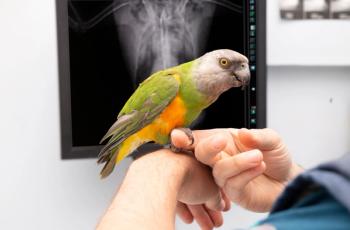
"Feline 5": Key Personality Factors of Pet Cats
A study has recently identified a set of 5 personality factors in pet cats.
Although domestic have cats have provided companionship to humans for thousands of years, little is known about their personalities. A study recently published in
To date, feline personality research has faced several limitations. For example, the research has generally focused on stress-related behavioral problems rather than on normal behaviors in psychologically healthy cats. In addition, the research has been done primarily in laboratories or in free-ranging feral cat colonies, rather than on pet cats in their home environments. From a study design standpoint, previous studies have had small sample sizes or did not consider the researchers’ influence on pet cat behavior during home observations.
RELATED:
- When the Pressure Is On: Stress and Learning in Horses
- Matching Dogs: Personality Matters
Cat personality research often uses the 5-factor model, also known as the “big 5,” which is used in human personality studies. In theory, this model assumes that an individual’s personality is representative of where he or she falls on each factor’s continuum.
A better understanding of pet cat behavior, the researchers noted, not only allows for development of a standardized ethogram, but also enables cat owners to assess their cat’s stress and make changes to improve its quality of life.
Data Collection and Analysis
The researchers collected and analyzed data from a 52-item questionnaire on cat personality that was completed by approximately 2300 cat owners, who collectively owned 2800 cats. The questionnaire was part of a larger citizen science project called Cat Tracker, which sought to further understand pet cats and examine views on cat ownership and management.
Examples of personalities assessed on the questionnaire included anxiety, dominance, and affection.
Identification of the “Feline 5”
Through statistical analysis, the researchers identified 5 main personality factors in pet cats. The 52 personality traits were grouped into these factors, examples of which are below:
- Impulsiveness: erratic and reckless behavior
- Dominance: bullying, jealousy, aggression toward other cats
- Agreeableness: affection, gentleness, friendliness toward people
- Extraversion: vigilance, inquisitiveness, inventiveness, playfulness
- Neuroticism: insecurity, anxiety, fear of people, suspicion, shyness
Owners received reports detailing their cats’ scores on the 5 personality factors, and how their cat scored relative to the other cats. The report also explained how the personality results could be applied to cat management.
The researchers observed that the extraversion, neuroticism, and agreeableness factors generally aligned with those same factors in human personality assessments.
They also noted that the majority of questionnaire respondents were women and recommended that future studies target a sex/gender ratio that is more representative of the general population.
Implications for Pet Cat Management
Identifying the “feline 5,” the researchers wrote, has important implications for improving pet cat welfare, especially for cats with extreme scores on a given factor. “Awareness of results being considered extreme on a scale…allows the owner to seek advice and consider changes to the environment or management of their cat,” they noted.
For example, a high neuroticism score could signal extreme shyness, which could be alleviated with additional hiding places. A low extraversion score (eg, aimlessness) could indicate cognitive dysfunction in a senior cat, prompting further veterinary examination. In addition, a cat with a high Impulsiveness score could be stressed, suggesting the need for assessment and treatment by an animal behaviorist.
Overall, the researchers believe that “a better understanding of cat personality by means of assessment could help owners improve conditions for their cats at home, thereby supporting the optimal well-being of their feline companions.”
Dr. Pendergrass received her Doctor of Veterinary Medicine degree from the Virginia-Maryland College of Veterinary Medicine. Following veterinary school, she completed a postdoctoral fellowship at Emory University’s Yerkes National Primate Research Center. Dr. Pendergrass is the founder and owner of
Newsletter
From exam room tips to practice management insights, get trusted veterinary news delivered straight to your inbox—subscribe to dvm360.




